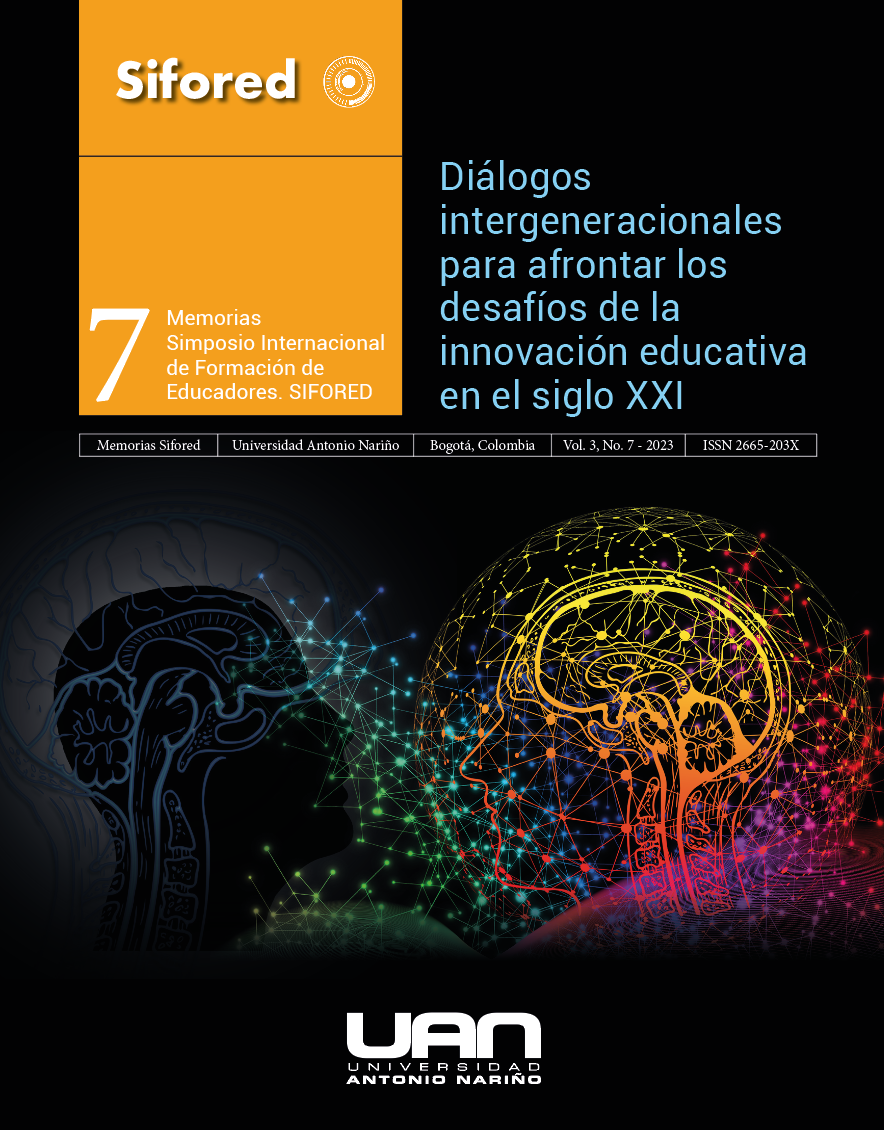Avances de investigación: evolución de esquemas cognitivos presentes en las Trayectorias Hipotéticas de Aprendizaje durante la solución de un juego matemático
Keywords:
cognitive schemes, learning trajectories, mathematical problem solving, renewalAbstract
The research progress of the thesis of the master's degree in technology education at the Universidad Distrital Francisco José de Caldas in terms of the development of a virtual mathematical game allows us to analyze both the evolution of cognitive schemes proposed by Marshall (1995) and the Hypothetical Learning Trajectories (THA) by Simon (1995) during the solution of the game “Turning the tables” by Stewart (2004). Since solving problems in mathematics is a difficulty for students (Socas, Hernández, & Palarea, 2014), their cognitive process is not clear during their learning as they are aware of this. The collection of data and modeling of situations with technological devices that are analyzed through the sequential method of mixed methods, from graphs obtained in the MATLAB software, which shows the representation of the movements of the players in the problem space and , the results derived from the verbal story technique that characterizes the verbal and body language of each player, serve to identify how the cognitive schemes evolve during the development of the game following a THA, contributing to the renewal in education.
Downloads
References
Cobos, J. (2021). Tecnología y educación matemática: construcción de una trayectoria hipotética de aprendizaje en el juego de las Torres de Hanói. Tesis de Maestría en Educación en Tecnología. Universidad Distrital Francisco José de Caldas.
Gómez, W. (2021). Índices de comprensión de trayectorias hipotéticas de aprendizaje en el juego de los Cuatro Ca-ballos. Tesis de Maestría en Educación en Tecnología. Universidad Distrital Francisco José de Caldas. Pardo, J. Q., & López, V. S. (1995). Errores conceptuales en el estudio del equilibrio químico: nuevas aportaciones re-lacionadas con la incorrecta aplicación del principio de Le Chatelier. Enseñanza de Las Ciencias: Revista de Investigación y Experiencias Didácticas, 13(1), 72–80.
León, O., Alfonso, N., Barbosa, F., Martinez, E., Muñoz, W., Páez, J., & Palomá, N. (2019). Ambientes de Aprendizaje Accesibles y Afectivos en Educación Geométrica. Encuentro de Geometría y sus Aplicaciones, 24 (pp. 75-93). Bogotá: Universidad Pedagógica Nacional. Whittaker, G. (2004). Microwave chemistry. School Science Review, 312, 87–94.
Liévano, L & Molina, R. (2022). Análisis de las trayectorias de aprendizaje del juego La Escalera. Universidad Distrital Francisco José de Caldas.
Marshall, S. P., et al. (1995). Schemas in problem solving. Cambridge University Press.
Páez, J., & González, E. (2022). Human-Robot Scaffolding. ACM Transactions on Human-Robot Interac-tion.Association for Computing Machinery.
Simon, M. (1995). Reconstructing Mathematics Pedagogy from a Constructivist Perspective. Pennsylvania State University
Socas, M., Hernández, J., & Palarea, M. (2014). Dificultades en la resolución de problemas de matemáticas de estu-diantes para profesor de educación primaria y secundaria. Sociedad Española de Investigación en Educación Matemática (SEIEM).
Stewart, I. (2004). Math Hysteria: Fun and games with mathematics. Oxford University Press.
Downloads
Published
-
Abstract235
-
PDF (Español)58
How to Cite
Issue
Section
License

This work is licensed under a Creative Commons Attribution-NonCommercial-ShareAlike 4.0 International License.


 Portal de Ciencia Abierta
Portal de Ciencia Abierta